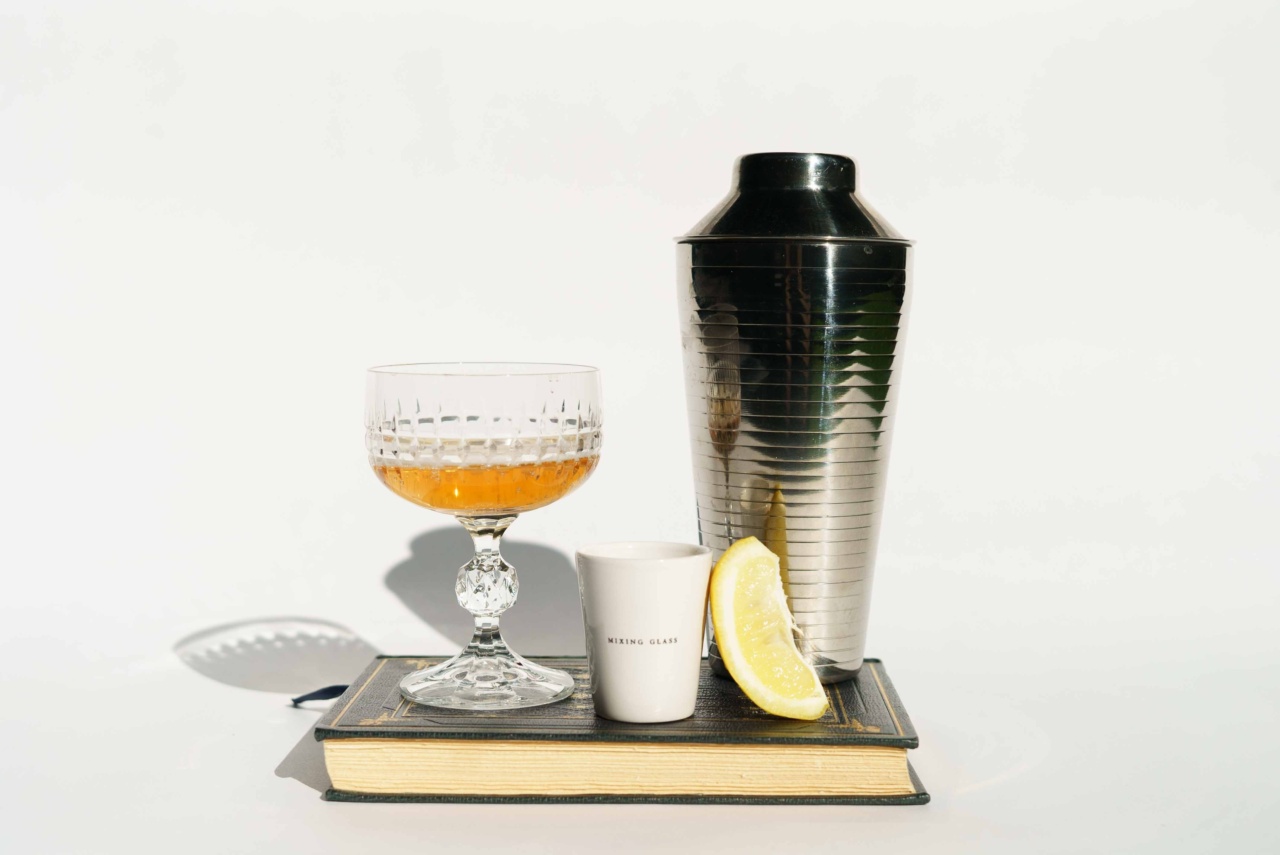When it comes to substances that people consume on a daily basis, two of the most widely consumed are caffeine and ethanol. Caffeine is found in popular beverages like coffee and tea, while ethanol is the active ingredient in alcoholic beverages.
These substances have contrasting effects on the body, with caffeine providing a stimulating effect and ethanol acting as a depressant. In this article, we will explore how caffeine can help counteract the impact of alcohol on the body.
The Science Behind Caffeine’s Effects
Caffeine is a naturally occurring stimulant that works by blocking adenosine receptors in the brain. Adenosine is a neurotransmitter that promotes relaxation and drowsiness.
By blocking these receptors, caffeine increases neural activity, leading to heightened alertness, improved focus, and increased energy levels. It also stimulates the release of dopamine, a neurotransmitter associated with pleasure and reward.
The Impact of Ethanol on the Body
On the other hand, ethanol, the primary component of alcoholic beverages, acts as a central nervous system depressant. It slows down brain activity, leading to a decrease in cognitive function and inhibition.
Ethanol binds to gamma-aminobutyric acid (GABA) receptors in the brain, enhancing the inhibitory effects of this neurotransmitter. This results in reduced anxiety, lowered inhibitions, and impaired motor skills.
Combining Caffeine and Ethanol: The Good and the Bad
Many people enjoy mixing caffeine and ethanol, such as having a cup of coffee after a night of drinking or consuming energy drinks infused with alcohol. The combination of these two substances can create unique effects, both positive and negative.
The Perceived Sobriety and the Risk of Alcohol-Induced Impairment
One common misconception when consuming caffeine alongside alcohol is that it can reverse the effects of intoxication. Some individuals may feel more alert and aware, giving them a false sense of sobriety.
However, the reality is that caffeine does not reduce blood alcohol content (BAC) or speed up the metabolism of ethanol. This means that the physiological effects of alcohol, such as impaired judgment and coordination, are still present even if the individual feels more alert.
Reducing the Sedative Effects
Although caffeine doesn’t eliminate the effects of alcohol, it can help diminish some of the sedative and cognitive impairments caused by ethanol.
By blocking adenosine receptors in the brain, caffeine can counteract the drowsiness and lack of focus associated with alcohol consumption. This can potentially make individuals more aware of their impairment and limit their participation in risky activities.
Increased Alcohol Consumption
While caffeine can reduce some of the sedative effects of alcohol, it may also have unintended consequences. Research has shown that individuals who consume caffeine alongside alcohol tend to drink more alcohol overall.
This could be attributed to the feeling of increased energy and alertness provided by caffeine, which may mask some of the early signs of intoxication. As a result, individuals may consume more alcohol, leading to further impairments and potential health risks.
Caffeine’s Impact on Reaction Time
One area where caffeine can have a positive effect is on reaction time. Studies have shown that caffeine consumption can improve reaction time, even in individuals who have consumed alcohol.
This can be important in situations where quick reflexes are necessary, such as driving or operating machinery. However, it is important to note that even with improved reaction time, the overall impairment caused by alcohol on coordination and judgment still remains.
The Dehydration Factor
Both caffeine and alcohol have diuretic effects on the body, meaning they increase urine production and can lead to dehydration. When consumed together, this dehydration effect can be amplified.
It is important for individuals who consume caffeine and alcohol to be mindful of their fluid intake and to drink water to stay hydrated. Dehydration can exacerbate some of the negative effects of alcohol, such as headaches and nausea.
Individual Variations
It’s important to recognize that everyone metabolizes caffeine and alcohol differently. Some individuals may be more sensitive to the effects of caffeine, while others may have a higher tolerance for alcohol.
Factors such as body weight, genetics, and overall health can also influence how caffeine and alcohol interact in the body. It is crucial to understand your own limits and make responsible choices when consuming these substances.
The Importance of Moderation
While caffeine may have some potential benefits in countering the sedative effects of alcohol, moderation is still key. Excessive consumption of either substance can lead to negative health effects.
It is recommended to drink alcohol in moderation and to be mindful of the caffeine content in beverages consumed alongside alcohol. Being aware of one’s own tolerance and listening to the cues of your body are important steps in maintaining a healthy and balanced lifestyle.
Conclusion
Caffeine and ethanol have contrasting effects on the body, with caffeine providing stimulation and increased alertness, while ethanol acts as a depressant.
While caffeine does not reverse the effects of intoxication, it can help diminish some of the sedative and cognitive impairments caused by alcohol. However, it is essential to be cautious when combining these two substances, as caffeine can mask the signs of intoxication and lead to increased alcohol consumption.
Moderation is key, and individuals should be mindful of their own limits and make responsible choices when consuming caffeine and alcohol.






























